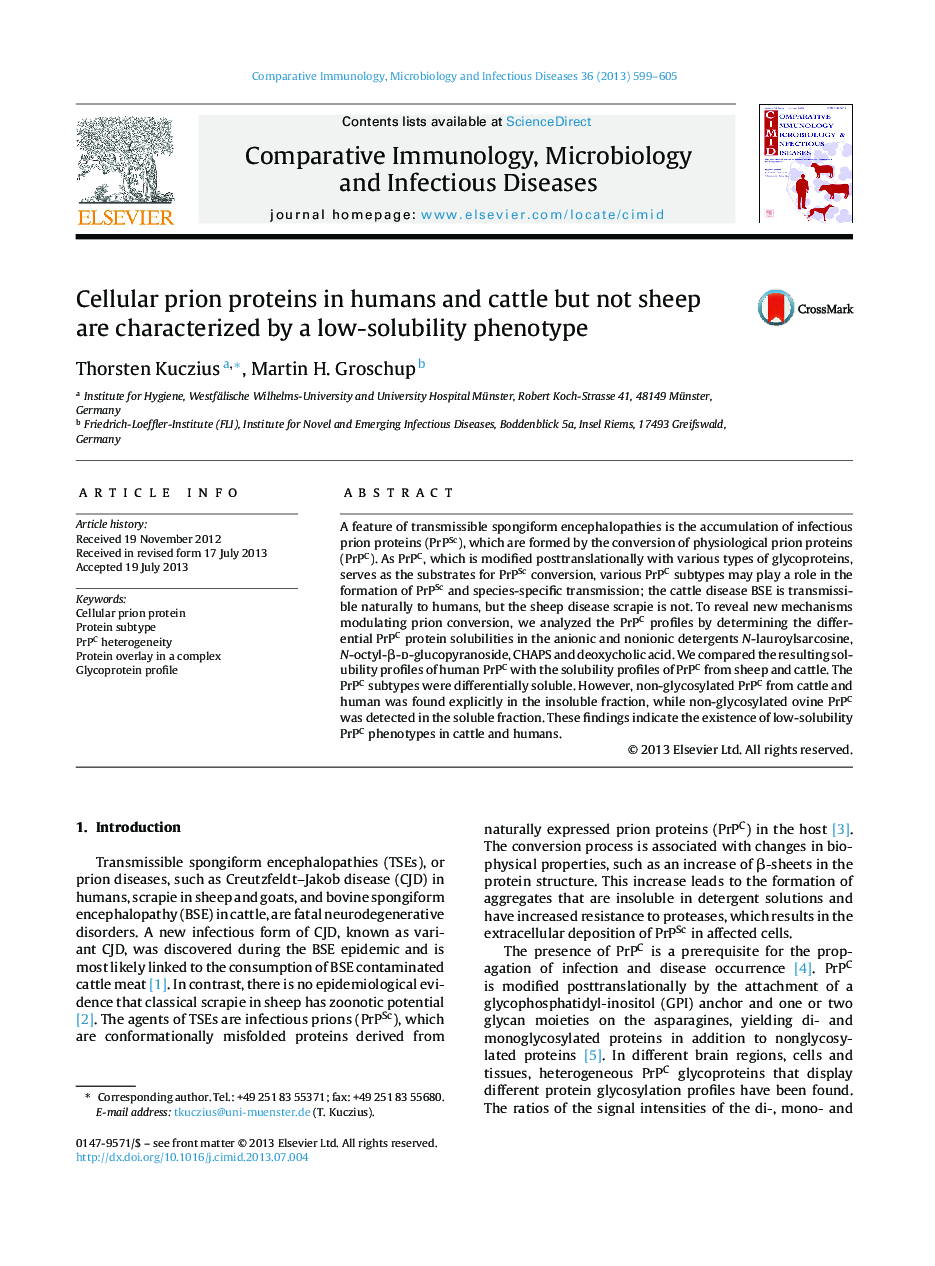| کد مقاله | کد نشریه | سال انتشار | مقاله انگلیسی | نسخه تمام متن |
|---|---|---|---|---|
| 10971356 | 1106304 | 2013 | 7 صفحه PDF | دانلود رایگان |
عنوان انگلیسی مقاله ISI
Cellular prion proteins in humans and cattle but not sheep are characterized by a low-solubility phenotype
ترجمه فارسی عنوان
پروتئین پونی سلولی در انسان و گاو، اما نه گوسفند با فنوتیپ با حلالیت کم، مشخص می شود
دانلود مقاله + سفارش ترجمه
دانلود مقاله ISI انگلیسی
رایگان برای ایرانیان
کلمات کلیدی
موضوعات مرتبط
علوم زیستی و بیوفناوری
علوم کشاورزی و بیولوژیک
علوم دامی و جانورشناسی
چکیده انگلیسی
A feature of transmissible spongiform encephalopathies is the accumulation of infectious prion proteins (PrPSc), which are formed by the conversion of physiological prion proteins (PrPC). As PrPC, which is modified posttranslationally with various types of glycoproteins, serves as the substrates for PrPSc conversion, various PrPC subtypes may play a role in the formation of PrPSc and species-specific transmission; the cattle disease BSE is transmissible naturally to humans, but the sheep disease scrapie is not. To reveal new mechanisms modulating prion conversion, we analyzed the PrPC profiles by determining the differential PrPC protein solubilities in the anionic and nonionic detergents N-lauroylsarcosine, N-octyl-β-d-glucopyranoside, CHAPS and deoxycholic acid. We compared the resulting solubility profiles of human PrPC with the solubility profiles of PrPC from sheep and cattle. The PrPC subtypes were differentially soluble. However, non-glycosylated PrPC from cattle and human was found explicitly in the insoluble fraction, while non-glycosylated ovine PrPC was detected in the soluble fraction. These findings indicate the existence of low-solubility PrPC phenotypes in cattle and humans.
ناشر
Database: Elsevier - ScienceDirect (ساینس دایرکت)
Journal: Comparative Immunology, Microbiology and Infectious Diseases - Volume 36, Issue 6, December 2013, Pages 599-605
Journal: Comparative Immunology, Microbiology and Infectious Diseases - Volume 36, Issue 6, December 2013, Pages 599-605
نویسندگان
Thorsten Kuczius, Martin H. Groschup,
